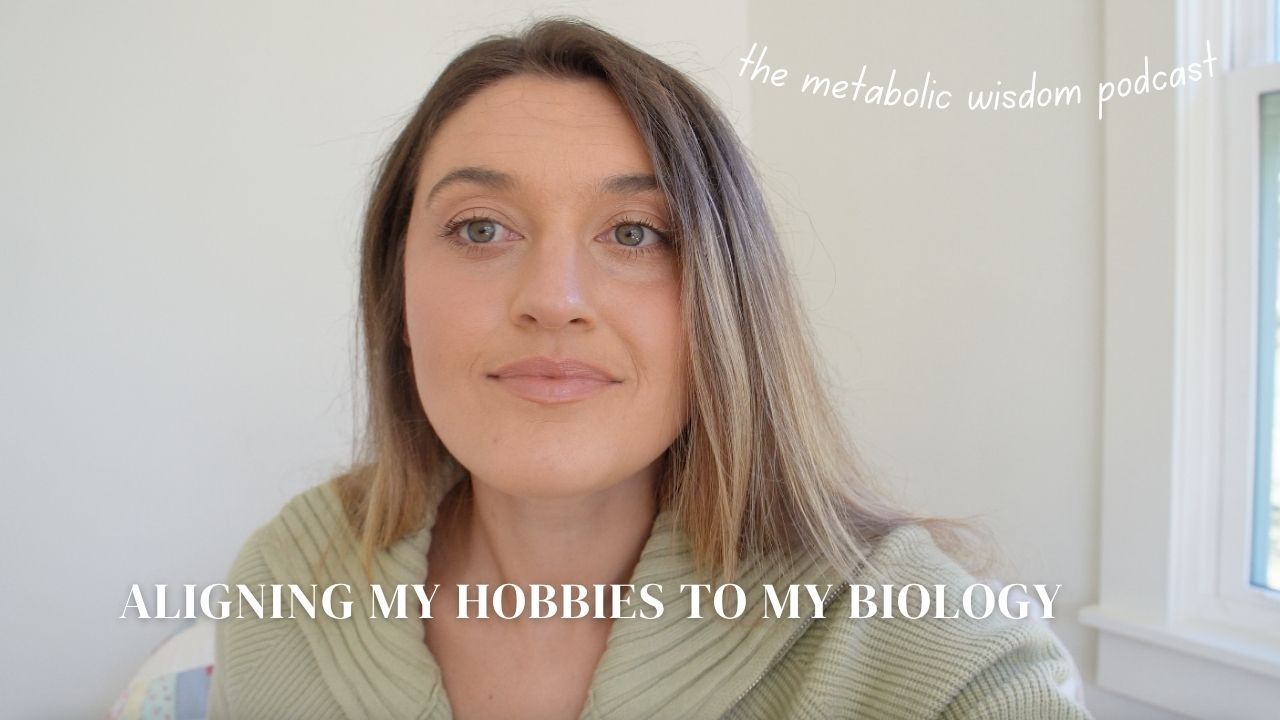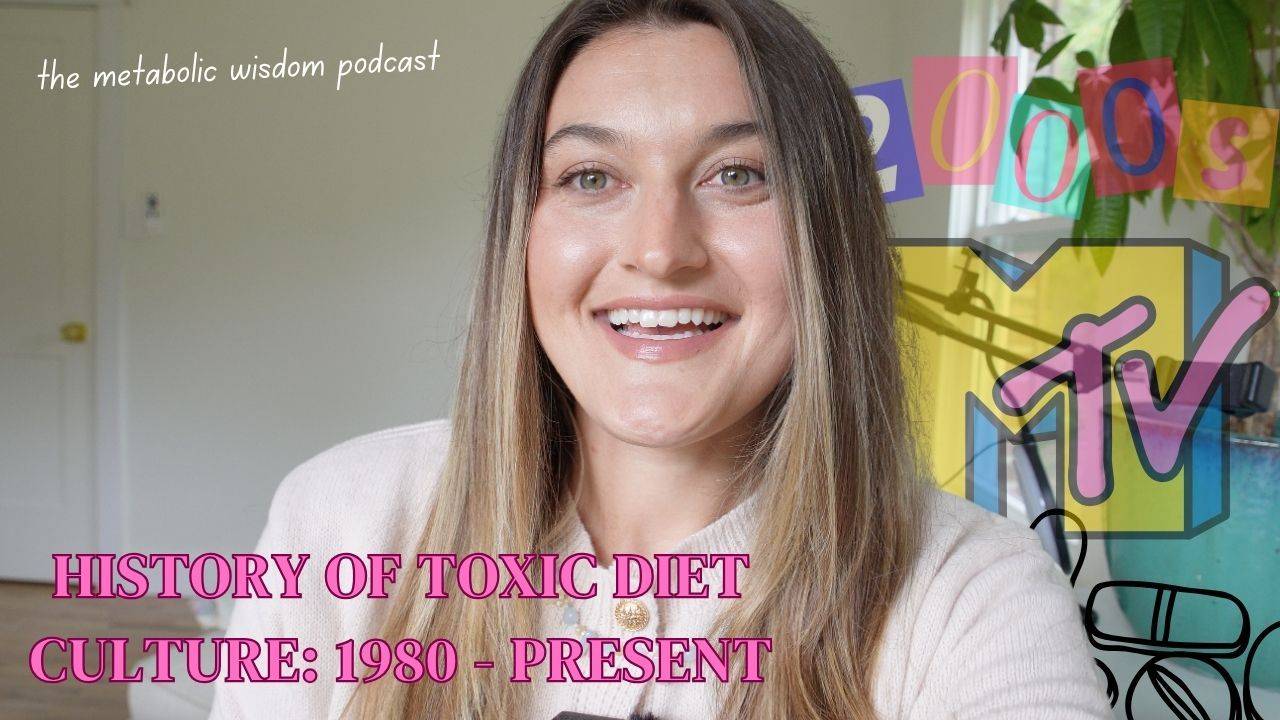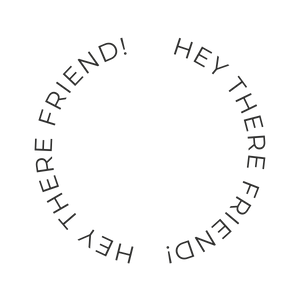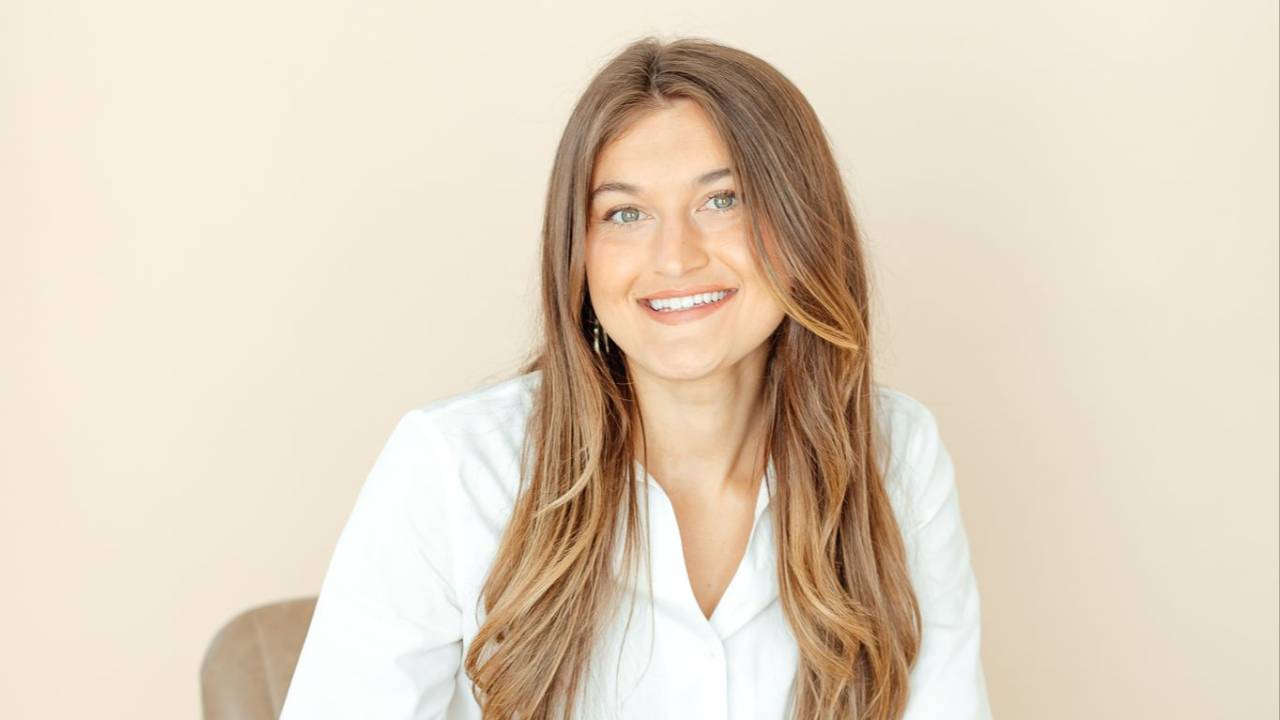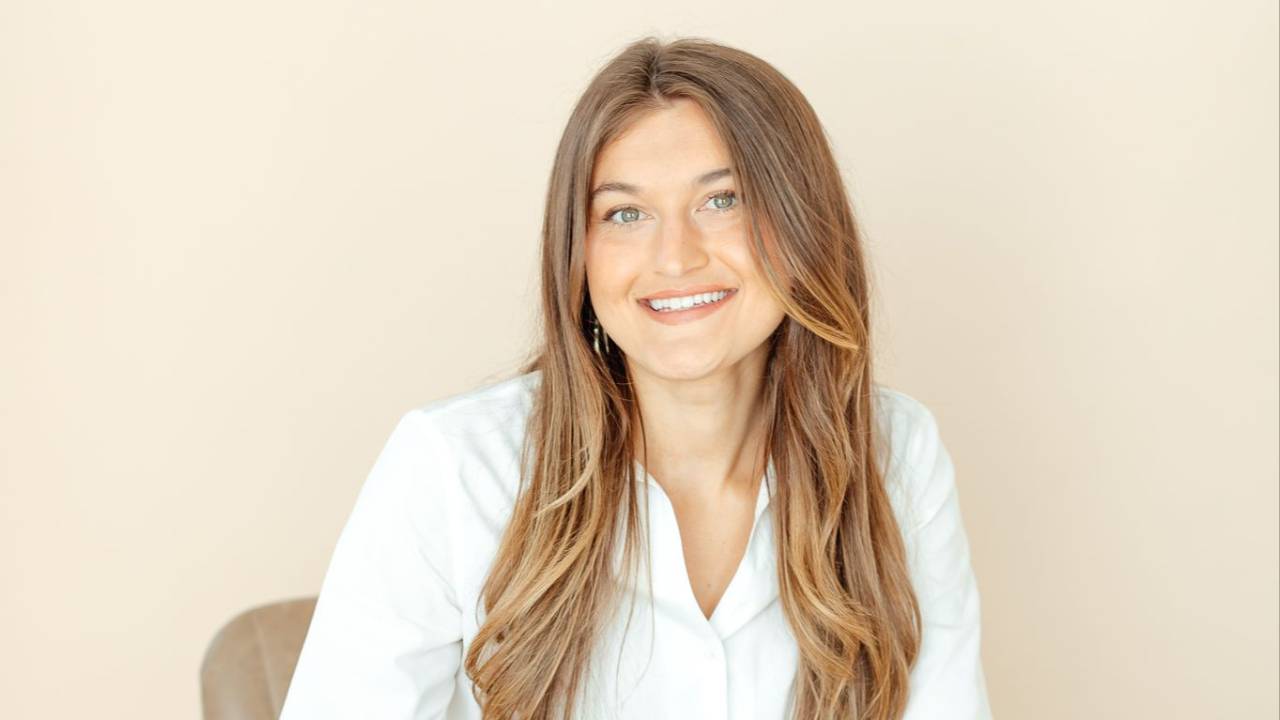The Root Cause of Hormonal Hair Loss (Podcast Episode Transcript)

Sara Childers (00:02.38)
Welcome back to the Metabolic Wisdom podcast. I am back after a little Labor Day break, but I am solo today. The last two episodes of my podcast have been with past clients. So if you're interested in looking at those videos, you can go check those out on my profile. But today I am back into the solo chair and I want to talk all things hair loss because that is the biggest...
Symptom that I see with clients so a few weeks ago. I actually put into my website a form that people can fill out if you're interested in working with me one-on-one as a client and it asks a few questions once I email it to you and One of the questions is like a checkbox of what symptoms you deal with and I noticed that bloating brain fog and hair loss are
at 100 % right now on the questionnaire, which basically means that every single person who has filled out that questionnaire so far, which has been a multitude of people, have had these three symptoms. So I wanted to go over hair loss, not only because a lot of my clients deal with it, but because this is something that I've actually looked into myself, because this is something that I have dealt with over the past few months of growing my business and also
doing a lot of other things in my personal life, stress has been a little bit higher than we would like for it to be. And one of the things that comes with stress is hair loss. And I've noticed that after my sink clogging up and after, you know, always finding hair everywhere that, my gosh, I am actually losing my hair a little bit. So we've been on a journey to...
recalibrate and to re-strengthen our hair follicles so that we can have long, luscious and thick hair. Because as women, I think it's so important that we not get too caught up in our looks. But at the same time, I do think that our physical appearance says a lot about our health. For instance, if we are retaining a lot of
Sara Childers (02:25.038)
Fat tissue or if we're overweight sometimes that can be a sign that we need to clean up our diet But just as much our skin and our hair can show what's happening inside as well So, you know if we have anything like acne sometimes that means that we're not detoxing well Or if we do have hair loss sometimes that's because of nutrient deficiency or stress and we'll go over the different causes so you can see what your root cause is but
As women, think that we subconsciously in our biological design, since we are creatures that are kind of made for beauty, love beauty, love all things creative, beautiful, I think we naturally want ourselves to be beautiful as well. so hair is a huge part of that because historically speaking, hair is a big part of what makes someone attractive.
and I'm gonna go through the root causes of hair loss with you guys and then a lot of them relate to the body and just how the body's working but some of them are environmental so I'll go over those at the end and I hope you enjoy.
Sara Childers (03:54.574)
So I have here kind of a connection of like what hair loss does in the body or how hair loss happens. So usually it starts with the nervous system and stress and it trickles down. It has a trickling down effect to the gut and malabsorption or gut health issues. And also it can be because of the liver and all of this kind of creates nutrient deficiencies.
which can lead to hair loss. But let me walk it through with you. So when we get to the root of your hair loss, no pun intended, when we ask why until we can't ask why anymore, which is what I love to do with my clients is we see at the very root of it all, hair loss usually comes from stress and an overworked nervous system. So if you think about it, have you ever had
your hairs on your arms like stand up when you either hear something or when you get scared or when you have a certain emotion. Hair, especially in Chinese medicine, is almost used as like a nervous system antenna of sorts. Like it's very like electromagnetic. It's very energetic. And that's why a lot of times we get goosebumps or you know, that's why people say,
that makes my hair stand up because it actually probably does. And when our nervous system is overworked and when we are constantly seeing cortisol and adrenaline, a lot of times that can cause our hair, the follicle to literally tighten up. And that causes that thinning effect where the hair follicle is tightened up so much because of the stress.
that our hair tends to fall out. but not only that, hair loss can be from stress, but stress can also cause other things that make hair loss even worse. So that kind of brings me to like, it's kind of a downstream effect. Like when we see the nervous system is so wrecked,
Sara Childers (06:18.102)
when we see that we've been stressed, either acutely stressed or chronically stressed or like just mild stress for a long time, we see a trickling down effect to not only does it affect the hair follicle, but stress also can affect the digestion. So I've talked a little bit about this before, but when we eat our food, when we digest our food, our nervous system actually has to be pretty calm. So
I talk about this a lot with my clients, but when we are eating our food, we want to be in a state of receiving or a state of rest and digest. We don't want to be stressed out. We don't want to be multitasking. We don't want to be distracted. But when our bodies are stuck in fight or flight, when they're stuck in that stress mode, what happens a lot of times is our digestion is just chronically impaired. So
It takes a lot of time for us to correct that and a lot of times we don't even realize it's happening. A lot of us just live in stress and so it becomes our new normal and we end up always being in fight-or-flight mode, being stuck in that mode because we don't know any different just subconsciously. So when we do digest food
because our body is stuck in fight or flight mode, those digestive juices that break down our food are not being released. For example, if your body is in fight or flight mode and it's not in rest and digest state, if it's not in a relaxed state when you eat, it will not release stomach acid, hydrochloric acid, betaine, pepsin that helps to break down pathogens, but also to break down proteins, which contribute a lot since it's collagen.
that contributes to the hair and other amino acids, that can cause us to not absorb and break down proteins like we should. Same with the pancreas. When the pancreas is trying to control the blood sugar because your body is so stressed out, it won't release pancreatic digestive enzymes, which are also what help break down protein. So a lot of times,
Sara Childers (08:37.204)
We eat all this protein, but our bodies are not even breaking it down. It's not even absorbing it into the system and letting it get to the hair. And that's really what strengthens the hair. So not only is our stress causing that hair stem, that follicle of our hair to be weakened, but also we are not replicating
are our nutrients in our hair as well as far as protein is concerned in this scenario. But it's not only pancreatic digestive enzymes and stomach acid that is affected a lot of times when we are in a fight or flight mode and our digestive juices are not releasing one digestive juice that is often not releasing.
is things like liver bile, so bile from the liver. And this causes a lot of issues in and of itself. So when our bodies get all the toxins that we hold in our bodies, whether that's from food or environment, it all goes to the liver. And our liver takes all the toxins in our body
and packages it up into this green liquid that is stored into the gallbladder and the gallbladder also releases it. And what's interesting about this green liquid is that the green liquid not only like holds all of the toxins that we want to get rid of in our body, but it can also, it can also digest fats. So that helps us to absorb our
our fat soluble vitamins, vitamin A, vitamin D, vitamin E, vitamin K, which have a lot to do with how dry our scalp is, with our hair health, hair, and nail health as well. And so when we are not releasing that bile like we should, cause our body is stuck in fight or flight mode, not only are we not digesting those fat soluble vitamins,
Sara Childers (10:56.17)
but we're also not getting rid of those toxins and those hormones that need to erased from the body. So this is a huge part of hormonal imbalance, but also hair loss is if you have things like estrogen and testosterone that are staying in the body and recirculating that causes hormonal imbalance. One of the other things that can cause hair loss,
is actually things like androgens, so kind of related to testosterone, being way too high. That's what causes like the hair growth on areas you don't want such as the face and then also hair loss in these areas such as like the top of the head. So it's called male pattern hair growth.
when you're growing kind of like a beard and then losing your hair, it's male patterned. It's not what we want. And a huge reason or contributor of this can be, well, the root causes always stress usually, but also it can be because your digestive juices are not releasing and so hormones are recirculating and that's not what we want. Another thing that happens too is if those toxins and heavy metals
that are packaged up in the bowel along with your hormones, if those are not being released from the body, those actually compete for absorption in the body to other minerals that are good. So a lot of times when we have like heavy metals in the body, that can get in the way of you absorbing good minerals in your body, good vitamins. And people don't realize this, people don't realize that
There are nutrients that actually compete for absorption in the body, but it happens and it's true. There's some nutrients that help each other be absorbed in the body and that's something that I focus on with clients as well. But whenever we do a hair test that I do in my fully feminine program, we're always able to see, okay, what nutrients look really high in your body that could be, you know, contributing to hair loss, inflammation, or
Sara Childers (13:21.646)
hormonal imbalance and what can we fill the body with to kind of fill those gaps, those nutrient gaps. Because the biggest issues with hair loss from my personal research is always stress and our body being in fight or flight mode, always, always, but also things like nutrient deficiencies in zinc, biotin, B12.
vitamin D, selenium, calcium, chromium, magnesium, vitamin C, iron, all of these things can be contributed to hair loss or if we are deficient in these, these can cause our hair to not grow as well either. So a huge part of this and a huge root cause of this is
the digestive juices just not being released because our body is in fight or flight. Because if your body cannot release the digestive juices to break down the food that contains the nutrients that you need, that's not going to happen. You're not going to absorb the nutrients that are in your food because it's not bioavailable. It's not broken down and it's not digestible. So it always comes down to the nervous system and digestion.
first and foremost, but then also nutrient deficiencies can be a huge part of this as well. That's why you see some people try things like a supplement and it worked for them, but then they recommend it to like a friend or a family member and that family member tries it and it doesn't work for them because their root cause could be more because of the stress that they have and the dysregulation that
they're not utilizing those nutrients. It's another root cause, if that makes sense. But yeah, so those are the biggest parts of hair loss, reasons for hair loss, reasons that hair loss and hair thinning can be an issue or lack of hair growth. Those are usually the reasons. Now there are other parts that are more...
Sara Childers (15:43.488)
more how do you say environmental but I will say that other than like bacteria in your shower that can sometimes cause dandruff which can lead to skin irritation and you scratching your skin and then having that hair loss other than that it's always going back to the nervous system because through the research I've done on different hormones that affect hair loss it always goes back to low progesterone
or high androgen levels or a combination of both of those, which they usually come in a combination of both. But the root cause to low progesterone and the root cause of high androgen levels is always high cortisol and stress. So when you ask why until you can't ask why anymore, it is because of stress and everyone says, I need to fix my stress. need to, I know, I know stress is my issue.
but are you actually doing anything about it? And I'm preaching to the choir here because I have seen on literal functional lab tests that I'm not breaking down the nutrients that I need to, at least as of last year when I did my yearly test. I was not breaking down any of the nutrients that I was supposed to, and I knew it was from stress.
But I've not, I've only incorporated a few things into my routine to actually help with the stress. So my hair, you know, is not thinning as bad, but it's still coming out. So are we actually doing anything about it? And this was a huge wake up call for me, kind of reconfiguring this and going over all the research I've already done was.
Yes, it always goes back to stress. And when I say stress, mean like you constantly being distracted at meals, you constantly consuming information, constantly being in a state of stress, whether that is self induced or lifestyle, usually it's self induced though. And then for me, a huge thing that's helped with my hair loss and my stress has been cutting out caffeine.
Sara Childers (17:59.212)
in the last year and also just stopping consuming short-term information. short form content like scrolling Instagram, I never do that anymore. I have a lot of trouble getting off TikTok, but getting off TikTok whenever I can, like really working on that. I don't really have a problem with Facebook because I'm not super interested in what's.
on there but stopping with the dopamine draining short form content and really just focusing on what are my tasks to do today, blocking myself out of my phone, those have been the biggest things and also like spending a lot of time outside whenever possible but...
Yeah, so those are always the biggest contributors to hair loss. And I get a lot of questions about that because I get so many clients who want to fix their hair loss first and foremost. And my biggest thing is always to do a lot of nervous system work first. Do as much nervous system work as you possibly can and then see how everything is going.
then add in like the digestive enzymes or the betaine and hydrochloric acid supplement, which is highly effective by the way. And then from there, after you have like worked on your nervous system, whether that's through prayer, meditation, going to a counselor, I have clients who even have gotten a vagus nerve machine that helps to,
recalibrate their vagus nerve, which is, you know, part of your central nervous system. And when it's out of whack, it's usually because you're stuck in fight or flight. So if you can work on that, you can get out of fight or flight mode. I've had people go as far to buy those machines to help with those or just spending more time in nature. It doesn't have to be anything expensive. It can be something free, but I think a lot of times the main thing I see with every single client I see in my practice is
Sara Childers (20:16.608)
It's not as bad with people my own age. It's not as bad with with people in their 20s. I've noticed in early 30s. I feel like this generation is good at seeing, okay, we need to slow down. But I see a lot with like my late 30s, 40s, 50s and on clients. until you get to the elderly, they're kind of different as well. But, definitely in the 40s and 50s and 60s, early 60s, I see tons of clients who are ex
extremely dysregulated nervous system wise, like so dysregulated nervous system wise. I don't know if I've met a client yet who has what I would consider a calm nervous system at this point in who's to say what the root cause is since it's so prevalent among that age group. But
My biggest thing would be to work on your inner child, work on yourself. That's what I see. The clients who get results work on the nervous system, but then from there going and supporting your digestion while you're working on your nervous system, while you're letting those digestive juices regulate, I would definitely add in a supplement to help with digestion so that you can break down your food like a good digestive enzyme.
Lately I've used a lot of betaine and hydrochloric acid supplements in my practice and they've made a huge difference for clients and their bloating and the way they digest food and I have all those linked on my Fullscript account which I will try to give the link to sign up for my Fullscript store below so that you can get discounted supplements and see what I recommend based off of my favorites list where I have everything categorized.
But aside from that, I think after I did a few months of nervous system work and digestive support, I would then transition to getting like a hair, skin and nails vitamin. Or I personally love prenatal vitamins for women because you need to have nutrients that support your fertility. Now, most prenatals kind of suck if I'm being super honest. I love the Seeking Health prenatal.
Sara Childers (22:38.03)
I think a lot of the prenatals, like ritual and other things that you see on social media, I've evaluated their ingredients and how many nutrients they have and it's just not impressive to me. Their marketing is great, but I think they need to have a better formulation if they're going to market that much. also on my Fullscripts account, I have all prenatal stuff linked, but
I love prenatal vitamins because even if you're not pregnant, if you're a woman, you should always be supporting your fertility. Even if you have no intention of getting pregnant because your fertility as your woman, as a woman is your vitality. So you always need to be nourishing yourself with nutrients that support fertility. So why not just be on a prenatal multivitamin instead of a regular multivitamin? And usually we see that those
nutrient levels in prenatals are much higher and they do support women in a way that multivitamins just don't. So I would definitely go with a prenatal vitamin because usually you see a lot of women who are pregnant and they start to have glowing skin and hair. One of the reasons is because they're finally giving themselves the nutrients that they need from a prenatal. So that would be my next step as far as like filling the nutrient gaps in order to have
growing hair and these are all things that I am doing myself. so I would never recommend something that I wouldn't do myself to any client, but past that point, if you continue to struggle with like hormones or like low progesterone levels and that's causing your hair and skin to suffer, I would look into continuing with your
nervous system regulation, cause that's a huge part, but also maybe incorporating like evening primrose or chasberry, often called by biotechs supplementation. Cause these things do help with progesterone levels. I would go as far, especially if you are looking to become pregnant and stay pregnant, looking into a progesterone cream.
Sara Childers (24:59.686)
or something that is natural and well tolerated with pregnancy that you can have during pregnancy if that's something that you're looking for in order to not only help with your hair and skin and nails, but also with keeping your pregnancy up and everything. cause low progesterone is a huge part of hair loss. the root cause though is always going to be nervous system regulation, but
The last thing I wanted to talk about as far as hair loss goes is a very interesting story I have about bacteria in the hair. So I had a client come to me and she had her hair tested, but not with the hair test that I do. She had a hair test done where she sent in just a follicle. I'm not sure what company it was with. I'm not sure how accurate it was.
but it measured the bacteria in her hair, which I thought was interesting. But I was looking up all the bacteria strands she had in her hair and I noticed that one of the strands of bacteria that was in her hair causes dandruff, which I never knew. I have always dealt with dandruff and...
One of the reasons that I feel like I have always been a shedder. So somebody who sheds their hair a lot is because I've always had dandruff, which causes irritation. I'll scratch hair comes out because you're kind of irritating that follicle. And that was a huge point of contention in my hair loss journey. And so I was looking into this for a client and I thought it was so interesting because as I look further into, you know, things like dandruff, I thought, Oh, this makes so much sense. Why?
tea tree oil, shampoos are usually used for dandruff because tea tree oil and things like rosemary oil and clary sage, these are antibacterial oils and a lot of times they can help with dandruff and usually I'm sure it's because dandruff is caused by certain bacteria. So I was talking to my aunt about this one day, she's very into health and she's also really great when it comes to cleaning and things like that and
Sara Childers (27:21.964)
she was talking about how she always cleans her shower heads. And I was like, well, I have not cleaned my shower heads as much as I should pretty much ever. No matter where I live, like I clean the shower head, just wash it off, wipe it off, but like I'm not like soaking it in vinegar. And so I was advised by her to soak my shower head in vinegar to help get rid of the bacteria and...
I was telling her, I was like, that's interesting because bacteria can build up so bad in those shower heads and bacteria is one of the things that causes dandruff. And so we were talking about it and she's like, well, that makes a lot of sense because whenever I clean out my shower head with a vinegar, my daughter's dandruff improves a lot. And so I tried it for myself and it helped.
But one of the biggest things that I did for myself was hair oiling. So I had seen so much on TikTok and Instagram about hair oiling and, get this hair oil, get that hair oil, whatever. And I just made my own. I got some hair oil off of, or just some almond oil, some organic almond oil off of my full scripts. And it was plain, didn't have anything in it. And I have my own.
organic essential oils that I put into things. So I put tea tree oil, put rosemary, clary sage oil, all of these antibacterial oils in this carrier oil, which was almond oil, which is super thin, which goes well with my fine hair. Because my hair, even though you can't really see it that well, is super fine texture, even though I have dark hair. And every time...
I wash my hair which is only like twice a week and sometimes if I don't go out much during the week it's only once a week which has helped a lot in and of itself to keep the follicle supple and not too dry but one of the things that I've done is actually oiling my hair and massaging my hair that helps with growth as well with this hair oil that is super cheap to put together nothing fancy.
Sara Childers (29:36.962)
but it's all organic, clean ingredients. Like there's no reason to buy like a $70 hair oil on the internet. That's just redonkulous to me. But massaging my scalp with this hair oil 20 to 30 minutes, maybe sometimes just 10 minutes before I get in the shower and wash my hair has been an absolute game changer. And so if this is something that you deal with, I hope that this podcast was helpful because these are some actual
actionable steps that you can take that are cost effective and also good for your entire body in and of itself, but also can really get to the root of your hair loss issues because symptoms are always just your body telling a story of something deeper that's happening. A symptom is not just a symptom. A symptom is a sign that you should look at and follow kind of like a breadcrumb to see
Okay, what in my body is dysregulated? Because honestly, I would say most of us have a dysregulated body and a dysregulated nervous system. It's just the world we live in now. And especially as women, our nervous systems are very, very sensitive because we were actually made to function out of rest, out of fullness, and we were designed to function out of just a lot of,
abundance, whereas men I feel like function well out of hustle culture. They function well out of achievement, logic, you know, getting things done. And our culture has kind of been wrapped in that and I think a lot of us are finding one of my most interacted with social media content pieces that I've ever put out there is about getting away from hustle culture or
feeling the effects of hustle culture on the body, like developing PCOS or hypothyroidism or having hair loss or gaining weight because you've hustled so hard and you can feel in your body that you've just abused your body for a certain amount of time and you're starting to reap the consequences of those. And I think that hair loss is just one of the many consequences that women go through after being deeply embedded into this.
Sara Childers (32:01.198)
Hustle and Masculated culture which is not bad for men not bad in and of itself But you can't do it all you can't be at all and you can't have that expectation So when we take a step back and look at what's actually going to serve us as women Which is rest working on our nervous system, you know all the things nourishment even if that means you know that we're not
a size two anymore, I think that's something important to think about because...
You might find that once you've done the work on your nervous system, once you finally let yourself nourish yourself, even if that means gaining a few pounds, once you've done those things, you feel so much better and you feel more aligned with your biological design and you're working with your body and not against it.
The next podcast I have, I may also have a special guest on here, but if this is something that you enjoyed, I would love for you to subscribe if you're on Apple or Spotify podcasts. And if you're on YouTube, please like and subscribe as well. But if you have any request of anything you'd like for me to talk about, please put it in the comments below and I will do a video on it. Thanks, bye.

